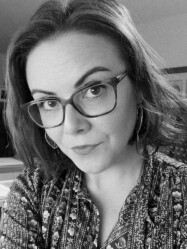Cultural histories of the environment
My recent work on the history of air and environment - begun with the Diseases of Modern Life project - aims to bring together histories of environment, the body, and medical technologies. It explores how people have understood their environment over time, as well as how they have sought to improve upon it using a variety of techniques and technologies. I am particularly interested in 19th-century tourism and consumer markets related to health.
This research considers the broader relationship between people and environment in the 19th century, but also specific technologies such as the compressed air bath and respirator. I am currently completing work that explores the use of the Jeffreys respirator in the Victorian era: its position on the boundary between the worlds of fashion and medicine, its place in popular culture, and how assistive technologies like it had the potential to socially ostracize their wearers.
The body in post-mortem and experimental research

I continue to work on the themes explored in my PhD on scientific practice in the 19th-century asylum, particularly the history of the postmortem and experimental work using cadavers. I am interested not only in postmortems as a practice but also in how they and the people who performed them have been understood in popular culture from the 19th century onwards.
At present I am working on the history of postmortems within private houses during the 19th and early 20th centuries. In doing so, I aim to explore the ways in which death was experienced beyond the medical sphere, how lay communities interacted with medical professionals, and how medical practice was structured in an era caught between home-based medicine and the goals of lab-based medicine.
Death imagery in the counterculture

Related to my research in the history of post-mortem practice, I am currently exploring death imagery in 1990s and early 2000s counterculture. I am interested in how such imagery has been conceptualised, disseminated, and consumed; the reuse of historical medical photographs; the ethical debates surrounding such images; and the ways in which the countercultural use and discussion of such images has the potential to inform contemporary academic debates about ethics and how we do or do not 'control' images of death.

